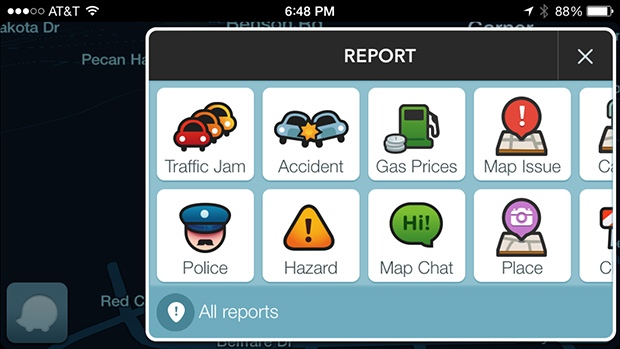Miami Cops Flood Waze App With False Data In Alleged Attempt To Preserve Ticket Revenue
A few weeks ago, we brought you a story about Google’s Waze app and how law enforcement agencies across the U.S. are becoming increasingly paranoid about how the app is being used. In a nutshell, Waze allows drivers to report on road hazards, traffic jams, accidents, and of course police activity. All of this information is reported in near-real-time, and with millions of drivers using the app, it provides a wealth of data to road warriors.
But many police departments see the app as a threat. Late last month, Los Angeles Police Chief Charlie Beck said that the Waze app can be “misused by those with criminal intent to endanger police officers and the community." He went on to add, "I am confident [Google] did not intend the Waze app to be a means to allow those who wish to commit crimes to use the unwitting Waze community as their lookouts for the location of police officers.”
Those comments raised many eyebrows as police officers on a daily basis drive around in highly visible vehicles that contain bright, flashing LED lights — they’re always in plain sight to everyday citizens. The crowd-sourced data that the Waze app provides with regards to police activity/location doesn’t change this fact.
Sgt. Javier Ortiz, president of the Miami Fraternal Order of Police, echoed the statements of Chief Beck, stating in an interview with NBC 6, “It puts us at risk, puts the public at risk, because it’s going to cause more deadly force encounters between law enforcement and suspects.” But instead of just speaking out against Waze, Sgt. Ortiz and hundred of Miami police officers are instead taking matters into their own hands. The officers downloaded the Waze app onto their smartphones and are now flooding it with false data to obfuscate police locations and insert bogus road/traffic alerts. That’s right; officers are wasting time during while on duty to feed false data to an iOS/Android/Windows Phone app.
The general consensus among the tech community and Waze users is that this isn’t really about police safety; it’s about money. If more people start using Waze, more people will be alerted to police speed traps and thus slow down. Drivers that are actually maintaining the speed limit aren’t going to raise the ire of police officers, and that means less revenue generation from traffic citations.
What’s most interesting though, and probably a side effect that police departments weren’t expecting is that Waze’s popularity has only grown since the initial news reports about police opposition came out last month. Waze has been a Top 50 free app on iOS for quite some time, but peaked at the #2 position two weeks ago and is currently ranked #35 among free iOS apps.
Luckily, there is a voice of reason in the state of Florida with regards to the Waze app and police officers. “If someone is suffering mental illness and they want to commit a heinous crime or hunt a deputy or a police officer; they don’t need Waze to do that,” said Broward County Sheriff Scott Israel.


